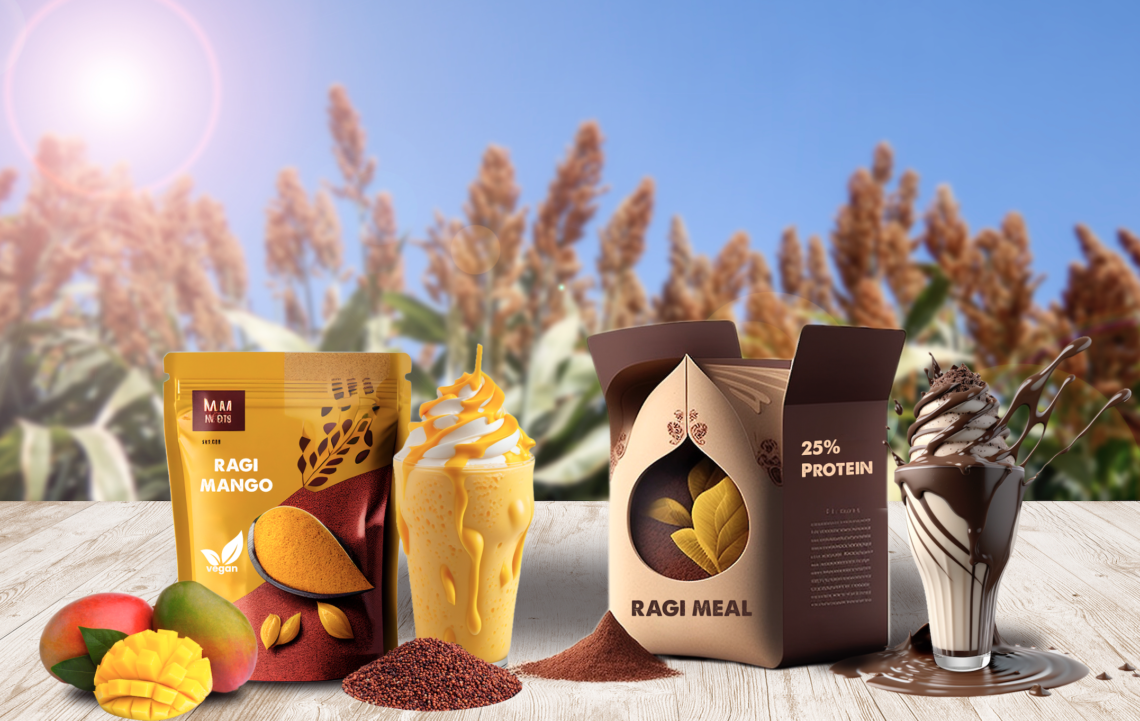EIT Food, an arm of the European Innovation and Technology Institute funded by the European Union and Blendhub, a Spain-based company that created a platform to offer any food recipe containing powder-based food ingredients anywhere in the world, are organizing an innovation challenge to help more people in Europe have access to safe, nutritious and sustainable food.
Innovating all along the food supply chain – finding new raw material sources, developing alternative nutritious solutions, and achieving more sustainable and cost-effective processes – is not an easy task. New food companies encounter barriers such as market segmentation, high development costs, lack of data to ensure success and efficient supply chains, and achieving better mass-market food quality. The idea is to help professionals and food companies speed up the time it takes to ideate, test, and launch a new product onto the market and deliver more nutritious, healthier, and affordable food products to consumers.
Blendhub, a member of The World Economic Forum’s New Champions community, is a global food production platform and multi-localized network that allows any farmer, startup or scale-up, to launch their novel food product, says CEO Henrik Stamm Kristensen. “Think of it as food-as-a-service.”
What Blendhub calls food-as-a-service is any food product recipe containing powder-based food ingredients, ideated and delivered anywhere in the world from sustainable global supply chains. The company wants to empower entrepreneurship and create local value instead of farmers and SMEs just exporting typical low cost food commodities like coffee, cocoa, spices, flour and many more to the Western world where all the value addition has been made over the last 100 years, says Kristensen. Some 80% of the world’s food is produced by 500 million farmers along with startups and SMEs but they reap only 20% of the value, he says.
Blendhub’s collaborative platform model for food production services aims to change that equation by helping companies and brands to develop and launch products, tackle new markets, and innovate without the need for investment in their infrastructure, says Kristensen. Its services comprise design and production and a range of additional services for brands and raw material providers.
Innovators have until June 15 to submit their applications. Solutions submitted must be able to be formulated in powder. Accepted categories include:
A new powder-based recipe or a significant improvement to an existing recipe with improved nutritional value, texture, flavor, mouth feel or cost.
- An innovative (potentially underutilized) powder-based ingredient to be utilized in a final product recipe or formula.
- An improved powder-based recipe that allows for targeting new markets.
Up to ten winners will receive services worth €25,000 to go from ‘idea to market’.
IN OTHER NEWS THIS WEEK:
ARTIFICIAL INTELLIGENCE
White House Convenes CEOs To Discuss AI Dangers
President Joe Biden and Vice-President Kamala Harris met with CEOs of top artificial intelligence companies on May 4 to made clear they must ensure their generative AI products are safe before they are deployed. Ahead of the meeting, the White House said seven of the largest AI companies had agreed to open their models to a degree of public scrutiny at the annual Def Con hacker convention in August. However, it said the level of openness would be “consistent with responsible disclosure principles”, leaving unclear how much the companies would reveal. OpenAI has refused to release basic technical information about its latest large language model, GPT-4. The White House also said the Office of Management and Budget would release draft guidelines for public comment this summer governing the federal government’s use of AI. The tech leaders attending the May 4 meeting were OpenAI chief executive Sam Altman, Microsoft CEO Satya Nadella, and Sundar Pichai, chief executive of Google and Alphabet, along with Dario Amodei, CEO of AI start-up Anthropic.
LinkedIn Founder and DeepMind Co-Founder Launch Personal AI Assistant
Inflection AI, a startup co-founded by Reid Hoffman and DeepMind Co-Founder Mustafa Suleyman, launched a chatbot called Pi, which is designed to serve as a personal AI assistant.
HEALTH
World’s Smallest Heart Pump Yields $55 Million For Israeli Startup
An Israeli startup behind the world’s smallest heart pump has raised $55 million. Magenta Medical’s device will be used to support patients arriving at the hospital with heart failure, or undergoing high-risk treatments to alleviate their symptoms. The pump can support the heart’s activity, and even replace it for several days until it recovers, by temporarily opening clogged arteries in the hearts of cardiac patients, and improving symptoms like chest pain and shortness of breath.The pump is folded up and inserted through a catheter via the groin. Once it has been guided to the heart’s left ventricle (which is responsible for pumping oxygenated blood all over the body), and the catheter has been removed, it expands by up to three and a half times.
ENERGY TRANSITION
Westinghouse Announces New Small Nuclear Reactor
Westinghouse said it will offer a smaller-scale nuclear reactor in an effort to expand access to nuclear power as demand for clean energy soars.The company announced the launch of a small version of its flagship AP1000 nuclear reactor on May 4. The new reactor, called the AP300, aims to be available in 2027, and will generate about a third of the power of its flagship reactor. Westinghouse’s move is a notable inflection point in the nuclear industry’s effort to remake itself as a way to address climate change. Electricity generated from a nuclear fission reactor produces no greenhouse gas emissions.
To read more of The Innovator’s News In Context articles click here.






